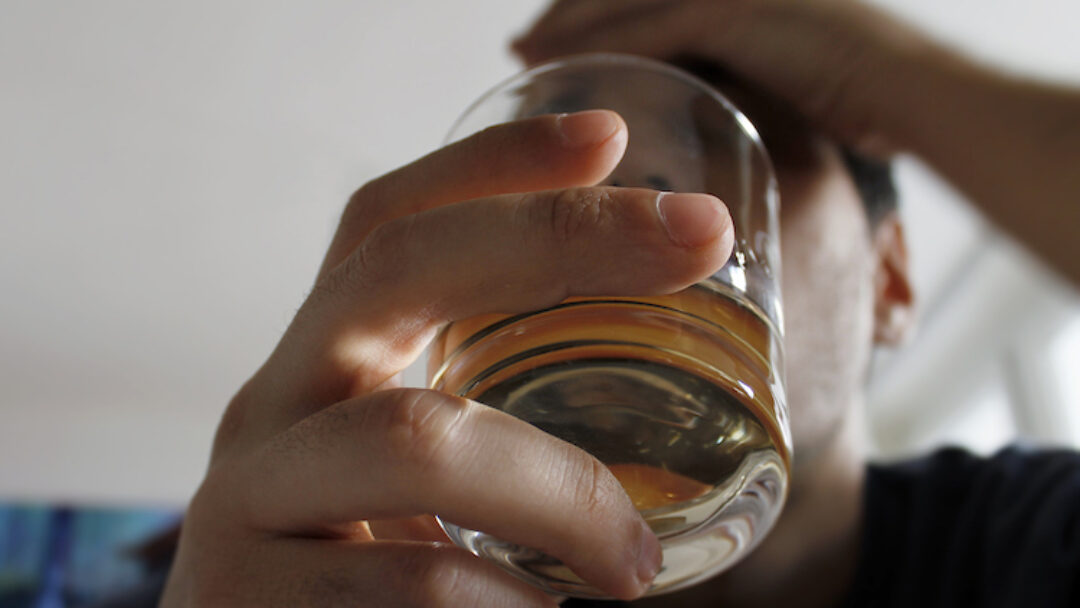Alcohol has long been a staple in social gatherings and a means to unwind after a long day. However, many people are unaware of the detrimental effects it can have on our bodies. From the moment alcohol enters our system, it begins to wreak havoc on various organs and systems. The liver, in particular, bears the brunt of alcohol consumption as it works tirelessly to metabolize the substance. Over time, excessive alcohol intake can lead to liver damage, cirrhosis, and even liver failure.
But the impact of alcohol extends beyond the liver. It affects the brain, heart, and immune system as well. Alcohol disrupts the delicate balance of neurotransmitters in the brain, leading to impaired cognitive function and mood swings. It also weakens the immune system, making individuals more susceptible to infections and diseases. Furthermore, excessive alcohol consumption can raise blood pressure, increase the risk of heart disease, and contribute to weight gain.
Why giving up alcohol for 30 days?
Choosing to abstain from alcohol for 30 days may seem like a daunting task, especially for those who rely on it as a crutch or social lubricant. However, the benefits of this temporary abstinence are well worth the effort. One of the main reasons to embark on a 30-day alcohol-free challenge is to give our bodies a much-needed break from the toxic effects of alcohol. By doing so, we allow our organs to repair and regenerate, leading to improved overall health.
Another compelling reason to give up alcohol for 30 days is to gain a better understanding of our relationship with alcohol. Many individuals underestimate the amount of alcohol they consume and use it as a coping mechanism for stress or other emotional issues. Taking a break from alcohol can help us reevaluate our habits and develop healthier coping mechanisms.
Benefits of abstaining from alcohol for 30 days
The benefits of abstaining from alcohol for 30 days are manifold. Firstly, it gives our liver a chance to recover and regenerate. The liver is an incredible organ with remarkable regenerative capabilities, and a month-long break from alcohol can significantly improve its health. This, in turn, leads to improved digestion, clearer skin, and increased energy levels.
Additionally, giving up alcohol for 30 days can lead to weight loss. Alcohol is high in calories and can contribute to weight gain, especially when consumed in excess. By cutting out alcohol for a month, individuals may notice a decrease in their waistline and a boost in their overall fitness levels.
Furthermore, abstaining from alcohol can improve sleep quality and mental clarity. Alcohol disrupts the sleep cycle and can leave individuals feeling groggy and unfocused the next day. By giving up alcohol for 30 days, individuals may experience improved sleep patterns and enhanced cognitive function.
Physical changes during the 30-day alcohol-free journey
The physical changes experienced during a 30-day alcohol-free journey can be truly remarkable. One of the first noticeable changes is improved skin health. Alcohol dehydrates the body, leading to dry skin and an increased risk of acne. By eliminating alcohol, individuals may notice a significant improvement in their complexion, with a healthier, more radiant glow.
Another physical change that many people experience is weight loss. As mentioned earlier, alcohol is high in empty calories and can contribute to weight gain. By removing alcohol from the equation, individuals may shed a few pounds and notice a reduction in bloating and inflammation.
Physical fitness can also improve during the 30-day alcohol-free journey. Alcohol impairs muscle recovery and hampers performance, making it harder to reach fitness goals. By abstaining from alcohol, individuals may find that their workouts become more effective, leading to increased strength and endurance.
Mental and emotional effects of giving up alcohol
While the physical benefits of giving up alcohol for 30 days are evident, the mental and emotional effects are equally significant. Many individuals turn to alcohol as a means of coping with stress, anxiety, or depression. However, alcohol is a depressant itself and can exacerbate these issues in the long run. By abstaining from alcohol, individuals may find that their mood stabilizes, anxiety decreases, and overall mental well-being improves.
Furthermore, giving up alcohol can lead to increased mental clarity and improved cognitive function. Alcohol impairs memory, focus, and decision-making abilities. By eliminating alcohol, individuals may experience sharper mental acuity and enhanced productivity.
Emotionally, individuals may find that their relationships improve when they are not under the influence of alcohol. Alcohol can impair judgment and lead to poor decision-making, which can strain relationships. By taking a break from alcohol, individuals may find that they communicate better, resolve conflicts more effectively, and cultivate healthier connections with others.
Strategies for successfully completing the 30-day challenge
Embarking on a 30-day alcohol-free challenge can be challenging, but with the right strategies, it is entirely achievable. Firstly, it is crucial to set a clear intention and establish a strong motivation for undertaking this challenge. Whether it is for improved health, weight loss, or a desire to reassess one’s relationship with alcohol, having a clear goal in mind can provide the necessary drive to stay committed.
It is also helpful to have a support system in place. Inform friends, family, and colleagues about the challenge and ask for their understanding and encouragement. Surrounding oneself with supportive individuals who are also committed to a healthier lifestyle can make the journey much more enjoyable.
Finding alternative activities to replace drinking is another effective strategy. Explore new hobbies, engage in physical activities, or spend quality time with loved ones. Having a repertoire of enjoyable and fulfilling activities can help distract from the urge to drink.
Lastly, it is essential to practice self-care during this 30-day challenge. Engage in activities that promote relaxation and stress reduction, such as meditation, yoga, or taking long walks in nature. Taking care of one’s physical, mental, and emotional well-being will make the journey more enjoyable and sustainable.
How to maintain a healthier lifestyle after the 30-day challenge
Completing a 30-day alcohol-free challenge is an accomplishment to be proud of. However, it is important to maintain the positive changes and continue living a healthier lifestyle beyond the initial challenge. One way to do this is by setting new goals and challenges for oneself. This could include participating in a fitness event, committing to a certain number of alcohol-free days per week, or exploring new healthy recipes.
It is also crucial to continue surrounding oneself with a supportive network. Maintaining connections with individuals who share similar health goals can provide ongoing motivation and accountability. Consider joining support groups or online communities where individuals can share their experiences and offer support to one another.
Additionally, practicing moderation in alcohol consumption is key. While a 30-day break from alcohol can be beneficial, it is also important to develop a healthy relationship with alcohol moving forward. This may involve setting limits, being mindful of one’s alcohol intake, and knowing when to say no.
Resources and support for those interested in quitting alcohol
For individuals interested in quitting alcohol or taking a break, there are numerous resources and support available. Online communities and support groups provide a platform for individuals to connect, share their experiences, and offer guidance to one another. These communities often provide a safe space for individuals to ask questions, seek advice, and find encouragement.
There are also various books and documentaries available that explore the effects of alcohol and provide guidance on quitting. These resources can be valuable tools in gaining knowledge and understanding about alcohol and its impact on our bodies and minds.
Lastly, seeking professional help from a healthcare provider or therapist can be beneficial for those struggling with alcohol addiction or dependence. These professionals can provide personalized guidance, support, and resources to aid in the journey towards sobriety.
Embarking on a 30-day alcohol-free journey can have remarkable effects on our bodies, minds, and overall well-being. By giving up alcohol for a month, individuals can experience improved liver health, weight loss, clearer skin, enhanced mental clarity, and better relationships. Strategies for successfully completing the challenge include setting clear intentions, building a support system, finding alternative activities, and practicing self-care.
Maintaining a healthier lifestyle after the challenge involves setting new goals, surrounding oneself with a supportive network, and practicing moderation. Personal stories and testimonials from individuals who have completed the challenge serve as inspiration and motivation. Resources and support are available for those interested in quitting alcohol, including online communities, books, documentaries, and professional help. Ultimately, the decision to give up alcohol for 30 days is a journey towards a healthier body and a happier, more fulfilling life.








